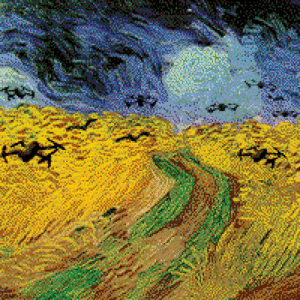I love free-improv music and noise music (when in the right frame of mind), but I’m well aware that most people don’t share this love. Most people are either baffled by it or incredulous that anyone might want to submit themselves to the torture of listening to such rot. And, of course, many people claim that “that’s not music!” And for this reason, I’m sometimes wary of even telling people about my band, The Tajalli Vortex, because at heart I’m a coward, afraid of the negative reactions, and I can’t even be bothered to engage in a bit of debate about something I love.
So why do I love it? And why should anyone love it? Well, it’s probably most instructive to explain how I discovered this music and grew to love it myself.
In my early 20s, I was a huge fan of the bassist Bill Laswell. It came about because I was a fan of Gong in my teens: Laswell played on the 1979 album New York Gong / About Time, and I was instantly hooked on his unique but incredibly funky style. I started buying every Laswell record I could lay my hands on (and there are a hell of a lot of them!)
Then one day I came home with a new Laswell acquisition, The Noise of Trouble. I put it on the record player… and wondered what had hit me. It was half-an-hour of meaningless noise, no discernable funky basslines, just… noise. Ugly, horrible, headache-inducing noise. I was really disappointed, but also really, really puzzled. I knew this guy was an incredible musician, I had a huge amount of respect for everything else I’d heard from him… so why did he feel it necessary to put out a whole record of useless crap? Fascinated, I put the record on again. Over the next few weeks, I would listen to it intently, but without any pleasure, almost every day, sometimes two or three times in a row, trying to discern some nugget of redeeming music within its harsh melée of sound.
Then one day, something strange happened. I guess I was onto about my 20th or 25th listen, and suddenly it just clicked! And it was more beautiful, more complex, more rewarding than anything I’d ever heard before. And I’ve never looked back.
That experience taught me a very valuable lesson: that which is worthwhile is not necessarily easy. To paraphrase a famous advertising slogan, good things come to those who make an effort. Many people believe that the most important redeeming quality for a piece of music is that it be “catchy”: if it doesn’t have an instant hook to pull you in and make you love it, then it’s somehow second-rate. Although there is an element of this prejudice in all branches of the arts, it seems to be strongest in music: few people would expect you to fall in love with a James Joyce novel or a Jackson Pollock painting without putting in a little effort, and many people recognise that the rewards that come from considering Joyce or Pollock are greater than those that come from considering Barbara Taylor Bradford or Jack Vettriano.
Free-improv is challenging music, it is music that demands your full attention in order to be appreciated, but again I think that this is a good thing. We live in an age when music is increasingly expected to serve as a backdrop to all aspects of life. Whether you’re shopping, having a bath, doing the washing up, reading a book, operating heavy machinery… people increasingly feel a need to have a stream of music babbling in the background, somewhere on the borders of consciousness. I admit to being as guilty as anyone on this charge, but I also strongly believe that it devalues music and makes us less capable of appreciating both complex music and, just as importantly, silence. Free-improv bucks the trend. Free-improv is not elevator music! It demands the devotion of 100% of your mind. If you are able to give that then the results are incredibly beneficial for the soul. (But it’s not always easy – there are still many times when I don’t have the mental strength to cope with such demanding music, in fact most of the time I will relax with something easily digestible rather than putting myself through the mental workout that complex music demands).
I’ll just recount here one other fruitful experience I once had defending free-improv and noise music. The guitarist Pat Metheny is generally thought of as a purveyor of rather middle-of-the-road, easy-listening jazz guitar music. However, underneath that cuddly exterior he has an affinity for the wilder side of jazz, in particular the music of Ornette Coleman. As well as some fairly out-there collaborations with the likes of Coleman and Sheffield-born free-improv prime mover Derek Bailey, in 1994 Metheny released an album called Zero Tolerance for Silence which polarised (read: with very few exceptions, disgusted) his fans. At the time, I had recently got online and, although yet to hook up to the Internet, I was very active on CompuServe, in particular on their jazz forum. On the forum, there was an outpouring of outrage that Metheny had the temerity to insult his many fans by releasing an album of such unlistenable dross. I was one of, I think, only two people willing to defend the album, and as a result suffered ridicule and flaming from other members. But I did get probably the best imaginable reward for my forthright comments: a beautifully sweet email from Pat Metheny’s mum, thanking me for standing up for her son!



